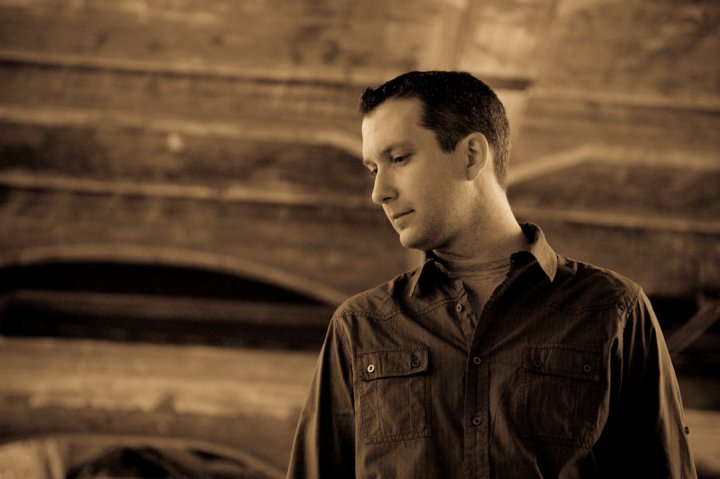Explore your future online
- At February 08, 2013
- By Nathan
- In Career & Life Planning
 0
0
Having a car that will get you where you need to go is much more important than what type of car you have. In the same way, finding a method that will help you clarify your career and life direction takes priority over identifying the “Cadillac” career-planning service.
With so many career-related websites, books, and online assessment systems available this point is important to keep in mind.
Find a source of guidance and insight that will potentially transport you from where you are right now to where you want to be in 10 or 20 years. Look around. Take your time. But remember: the idea is to get moving. So try something; don’t wait too long. A tangible resource in hand is exceedingly better than a distant ideal in your head.
Would you be interested in exploring the TypeFocus career-planning service provided here at Career & Life Direction? This offer is free (yes, free) to the first 4 people who send an email with the required information. The usual cost is $34.95 plus tax. The only catch is that you need to be willing to have your opinion about this service published on this site.
Why don’t you give it a try?
While I am not a pure pragmatist, in many situations what works for one person may not necesarily work for another. Different people have different preferences, different personalities and different ways of making decisions. There are often 25 different ways of doing the same thing that all more or less work just fine. This way of putting it could be a slight exaggeration, but you know what I mean.
So don’t feel like you have to do what everybody else around you seems to be doing -particulary if you are mingling with the coasting crowd. Be yourself. Take responsibility for your life. Take action. What will help you become all that you were intended to be? That is the question.
It might be necessary to try a few different career planning methods until you find one what works for you. What have you looked into so far?
Back in high school, I had a brief job guiding other students through a computer program (I can’t remember what it was called) that was intended to help young people decide which career path to take. Punch in some information and out popped your life purpose – or at least a few potential careers. That’s how it worked.
And although I am sure this form of guidance was offered with the best of intentions, I didn’t find it particularily helpful. More to the point, this experience only seemed to create more confusion in my life. Was I really supposed to be a florist? I didn’t think so.
For all I know, this service was greatly appreciated by the vast majority of students at my school. And yet, I can’t remember a single student jumping around joyfully in the guidance office, exclaiming how this program had just changed their life. It was more like, “Well, I finally got that over with.”
Staring at a computer isn’t likely the answer if you are tired of feeling like student or human being #489. It is possible that what you need more than anything else is a real, live, human being to talk to. If this describes your situation, is there someone in your community who you know and trust? Why don’t you give them a call and arrange a time when you can talk?
During the conversation you might want to ask your older friend how they decided what to do. What worked for them?
Perhaps you could also talk about the recent TypeFocus career-planning service you worked through. Did this experience give you more of a sense of direction in your life? You could share your thoughts. What did you like about it? What didn’t you like? Ask for their response. Go from there.
Here is my final pitch: Please consider signing up for free access to the TypeFocus career-planning service. This offer is available until Thursday, February 14, 2013. All that is required is your real name and email address together with a brief statement that you want to sign up.
If you are one of the first 4 people to respond, you will eventually receive an email indicating that you are signed up and telling you how to proceed. A short paragraph describing your impression of this service is requested by March 1, 2013.
© Career & Life Direction 2013. All rights reserved.
Waiting for a miracle
- At February 02, 2013
- By Nathan
- In Career & Life Planning
 0
0
Miracles happen; they do. Deny this and you end up denying reality.
Stop for a moment and consider what you might discover given a chance to interview even a few million people on this planet. May I suggest that you will hear one story after another that is very difficult to deny.
Meanwhile, many people in the Western world have a very strong belief system that will not allow them to accept the possibility of God’s occasional, let alone constant, intervention in human affairs. This doesn’t happen because it can’t happen – according to their system. And that’s too bad, because what you believe can have a way of distorting your vision and even closing your eyes.
While I have a lot of respect for some aspects of higher eduction, going to university or college isn’t necessarily the route to take if you want to discover what is really going on in the world. Sitting in a classroom reading books and writing essays has its place, but it amounts to placing yourself in a controlled environment. For you soon become preoccupied with certain things and unable to attend to others.
Sadly, staying in such a state for too long, say, for the amount of time it takes to get a degree or two, is a great way to become disconnected from reality. There are other ways to lose your grip, but this is one method that will work just fine.
Miracles happen. But they don’t always happen.
Farmers tend to raise cattle on land that simply isn’t suitable for growing crops. Doesn’t everybody know that? I guess I didn’t.
And although this illustration is a bit of an aside, the larger point remains: If you don’t believe in miracles, it may well be because you have spent far too much time living in an educational or cultural or media bubble of some sort and not near enough time out in the real world having a look around.
Miracles happen. But they don’t always happen. Consider two traumatic stories:
On December 14, 2012, one well-armed young man walked into a school filled with young kids in the USA and opened fire. In a matter of 10 minutes, Adam Lanza killed 20 students and 6 adults. On August 5, 2002, four men armed with AK-47 assault rifles arrived at a school in Pakistan and did the same. After the 15 minutes attack, 6 adults had died. This included: Abdul Rehman, Baber Pervaiz, Jave Masih, Manzoor Elahi, Mohd. Mukhtiar, and Mohd. Rafiq. A tragedy nonetheless.
The terrorists were not, however, trying to kill other Muslims or their own countrymen. The note left behind made it very clear that they were targeting Christian kids from the West. But no students at Muree Christian School died that day. Not a single one.
Look into the details, take the time, and you might be surprised at what you discover.
And yet, this isn’t to suggest that it always turns out well for Christian people. Life doesn’t work that way. Most every day, a church is attacked somewhere in the world and hundreds of people are oppressed, threatened, and even killed. Saeed Abedini was recently sentenced to 8 years in prison in Iran. But many other stories could be told. If you really want to feel depressed, look into what is going on in North Korea.
To be clear, this reflection about miracles is primarily intended for people who are already convinced they take place. But is it possible to be too convinced? Yes, in a way. For what starts out as an entirely appropriate and healthy conviction can drift towards a distorted and extreme position. There is a big difference between believing in an open system, that is, in a world where God is free to intervene, and presuming to know where and when and how this will happen.
Living in denial of the miraculous isn’t the answer. And neither is routinely waiting around for a miracle to take place.
© Career & Life Direction 2013. All rights reserved.
Hockey, hockey, hockey
- At January 26, 2013
- By Nathan
- In Career & Life Planning
 0
0
How can you tell when a positive part of your life has become a distraction? Don’t expect a warning bell to go off or wait to hear a buzzer. It isn’t always easy to know.
For example, if you enjoy following the National Hockey League, how much time spent watching hockey would you say is too much? Four hours per week? Ten hours a week? Twenty? At what point has it gone too far?
Feel free to substitute another sport or hobby here if you like. Whether it is soccer or football or surfing the Internet, try to identify what could prevent you from living a life that is much more significant. Reading the news, trying to stay up on what is going on in the world, probably consumes too much of my time. What holds your attention?
How do you decide when an interest like hockey has become too important?
Five team jerseys in the closet, two jackets, three hats, four cups, six posters, and two massive team flags flying from each vehicle you own might be a clue. Naming all of your kids “Wayne” after the great Wayne Gretzky could be another. Hosting a hockey night in your home every other night of the week would also be cause for concern. There are likely also many early warning signs that indicate a problem.
There is, of course, nothing wrong with having a little fun and cheering on your favorite team. But how much time and energy and enthusiasm is too much? Where do you draw the line? And what will you miss out on if you don’t?
Fanatical enthusiasm is often worn like a badge of honour when it comes to sports. Few people would declare, “Watching ping-pong is my life purpose!” But in Canada, watching grown men whack a puck back and forth – and beat each other up in the process – comes close.
Given that the bickering between the billionaires and the millionaires has recently come to an end, this is admittedly an odd time to be posing this question. The lockout has finally ended after months of negotiations. For many, this is a great relief. Thankfully, the conflict is over. When it seemed like it would be game over for the entire season, it is now game on.
After such a long break, Sidney Crosby and Alexander Ovechkin are likely trying to remember how to lace up their skates. Okay, maybe not.
It almost sounds unpatriotic to say that I have enjoyed the break from our so-called national pastime. But it’s true. For hockey, among other things, has a way of barging in and demanding enormous amounts of time and attention. More and more and more attention seems to be required. It is never enough. What started out as a fun and friendly game to play on the pond in the winter has turned into a campaign to control your life. When the hockey-cult mindset kicks in things get a little crazy.
“Kill them!!!” That’s what the mother of one of the guys on my team use to yell from the stands. As I recall, we were losing in the first round of the provincial playoffs. And she didn’t seem to care much for the young kids on the other team.
Do you want to wake up one morning in a seniors home (that is, if you live to reach old age) and realize that you had been compulsively committed to secondary and second-rate life goals? One day, perhaps during a break from playing bingo, a small visitor is bound to ask, “So what is the most important thing that you did with your life, Grandpa?” What will you say? Are you going to talk about all the games you have watched and played?
A clock sits on the desk to my right ticking steadily; a reminder that your time on this earth is limited as is mine.
© Career & Life Direction 2013. All rights reserved.
Making a mission statement
- At January 16, 2013
- By Nathan
- In Career & Life Planning
 0
0
What is a mission statement?
A personal mission statement is a brief summary of your life focus. As such, it is larger than a career and much bigger than a job. And while it connects to your deepest convictions, it adds more information. Your statement is unique to you. It serves to direct your entire life by identifying the larger dreams and goals that drive you.
How do you make a mission statement?
It isn’t easy. Don’t expect it to be easy. You likely won’t find a quick formula or method to produce one. Although here is a suggestion: Give yourself, say, five years to live a busy, shallow, frantic, and non-reflective life. Then, stop and intensely reflect on the futility of the past five years. Meditate long enough to become good and frustrated. At this point, pull out a piece of paper and write down what you would much rather be doing with your life.
What does a mission statement look like?
My larger goal is to help restore Western civilization as a light in God’s world by encouraging the development of healthy and growing Christian communities and by expanding the influence of Christian individuals and organizations. At the same time, I hope to inspire people everywhere to develop their God-given potential for the common good.
Why bother working on a mission statement?
While there are likely many reasons, here are a few to consider:
1. To identify larger goals
A mission statement, or whatever you feel like calling it, will help you spend your time and focus your energy on something significant. Each person reading this is small and limited and can’t do everything. That being the case, what are you going to do with your life? How will you spend your time? Decisions must be made.
Writing down significant goals amounts to saying, “I am going to aim for this and not that.” So if you are tired of drifting along, doing a little of everything or a lot of nothing, you might want to work on your mission statement.
2. To set personal boundaries
A mission statement functions like a personal boundary. In other words, it is like a fence that separates your yard from your neighbour’s. For the most part, what your neighbour does on his land is up to him. If George began enriching uranium in his garage and building nuclear missiles pointed at you…now, that might be different. Usually, though, what George does over there is up to him and what you do – in your yard – is up to you. That’s how it works.
Do you ever feel like you are living someone else’s life? If so, you might need to have a look at your fence. Is it still there? Does it need repair? Take the time to establish your personal boundaries by formally identifying your life direction.
3. To discover core convictions
A mission statement will force you to think about what you believe. Unless, of course, you adamantly refuse and choose not to. Although that may be difficult. But do you really want to live a random and arbitrary life? The catchy slogan, “Practice random acts of kindness” could just as easily have been, “Practice random acts of cruelty!”
Sure, having strong convictions does not necessarily result in more of heaven here on earth. It all depends on what you truly believe. Look at Mali. But a widespread “whatever” mentality is good news if you were hoping for a little more hell. So keep asking “Why?” until you get answers. Go from there.
The short answer, is that it is a good idea to write a mission statement because this is another excercise that could help you reach your true potential.
Attempting to write a mission statement makes sense once you realize that writing is the process by which people usually discover things they don’t aleady know.
© Career & Life Direction 2013. All rights reserved.
Telling your story
- At January 11, 2013
- By Nathan
- In Career & Life Planning
 0
0
Since this website has a global focus, it really doesn’t matter where you live. Articles travel fast via email. If, however, you hail from Saskatchewan or light up when you hear the words “Trailview” or “Greenridge” consider this to be a personal invitation.
But be aware that Career & Life Direction is not presently listed among the Fortune 500 group of companies. Which is to say, that I am offering a modest amount of media fame and $50 per article.
At the moment it would be great to be able to offer other perspectives in the following three areas:
1. Career Selection
What do you do for a living? Or, if you are now retired, what did you do? And what advice would you offer to a young person who is seriously considering the same career? What do they need to know in order to make a wise decision? The idea here is to provide personal and practical advice.
So far, I already have an article from a pastor and a nurse? Are you a doctor, a teacher, a farmer, an accountant, a carpenter, a banker, etc.? Why did you choose this career or vocation? Imagine that you are talking to a young adult who is just starting out in life. What could you say that would help them discern if this career is a fit for them?
What do you find exciting and fulfilling about what you do? And what do you sometimes find difficult? Careful consideration is required when making a career decision.
2. Personal Direction
Do you have a personal mission statement which serves to guide the overall direction of your life? If so, how did you go about putting it together? What does it say? And how has having this helped you make decisions over the years? Give specific examples.
The goal is to assist people who are frustrated because of a lack of general direction in their lives. What could you say to encourage and direct someone in such a situation – regardless of their age? What specific steps could they take to go about acquiring a more clear sense of direction?
In my own case, two books were particularly helpful. More information about these books is available in the “Progress” section. But the process may have been quite a bit different for you.
Any thoughts?
3. Organizational Development
Finally, do you have a leadership role in a small or large organization? Have you served on a governing board? Are you the president or the CEO of something? Are you actively leading a business, a church, a government department, or a community organization?
Is your name Stephen Harper? Yes, it is okay to write about running a country. Although I’ll understanding if you are too busy dealing with protests and a variety of other problems.
How have you helped to shape the direction of the organization you are a part of in a positive way? Do you feel that what you are a part of has reached or is beginning to reach its full potential? Why or why not?
More to the point, what advice would you offer to a leader who is struggling to clarify a vision or develop the potential of a group of people? What has worked for you? Is there a resource you have found helpful and would want to recommend?
Well, that’s about it for now. Thanks for your interest!
Nathan
*Please be aware that your article will be edited. In the process, I will attempt to preserve your voice and clearly convey what you are trying to say. Click on “Contact information” at the bottom of this page in order to ask a question or submit an article for consideration.
Anxiety and God’s will
- At January 09, 2013
- By Nathan
- In Career & Life Planning
 0
0
J.I. Packer and Carolyn Nystrom wrote God’s Will: Finding Guidance for Everyday Decisions specifically for Christian people who feel stressed, anxious, and fearful as they face the future. Which is to say, that this book isn’t primarily intended for frantic atheists, tense secular folk, or calm and collected Christians either.
Christian? Check. Traumatized by this topic? Check. Then, you might want to read this book -and read it slowly.
Bringing up God’s will may seem to complicate the whole decision-making process. Less stress does sometimes result from reducing the number of wills involved. Eject God straightaway and you have one less will to worry about; or so some people say. But then again, you might end up with billions of little gods running wild, a whole lot more anxiety in this world, and heavy-handed governments rising up all around to control the chaos.
That last sentence was a bit on the heavy side. But perhaps it needed to be said nonetheless.
Career counsellors who don’t believe in God (or are not allowed to talk about it if they do) naturally omit a thorough discussion about discerning God’s will. The title that comes up again and again, popping up all over the place, is rather something like this: Bob’s Will: Helping Bob Figure Out What He Wants to do With His Life. Admittedly, this formula usually works well, for men and women with various names, and provides a genuine service to many people. Unless, of course, it turns out that “Bob” is considering, say, joining a gang and selling drugs to kids down the street.
It will come as no surprise, that a careful reading of J.I. Packer’s and Carolyn Nystrom’s book would lead to the conclusion that routinely destroying other people’s lives is not God’s will. But it might still be Bob’s.
Most Christians, of course, are not sitting at home in front of their computers agonizing over whether or not to join the Hell’s Angels or another gang promoting organized crime. “Should I sell heroin or cocaine this year?” Decisions, decisions. To be fair, very difficult situations can arise – quite apart from any reference to criminal activity. And if you are faced with trying to choose what is best, when all of the options look bad, begin towards the end of this book.
Otherwise, begin at the beginning. Begin with a discussion of Psalm 23. Begin by reflecting on words of comfort and reassurance if you are “running silly” or “running scared.” From there, you will be reminded that although God will guide you, this doesn’t mean that it is going to be easy or that your next step will be immediately obvious. Shortly after that, there is an invitation to reflect on Romans 12:1-2 and consider that your level of internal spiritual health will determine in part how well you are able to make wise decisions in daily life.
And then, from chapter four on, the balancing act begins. The authors are attempting to simultaneously guide anxious Christians away from a “superspiritual” and a “subspiritual” approach to discerning God’s will for their lives.
On the one hand, there is a strong emphasis on trying to understand what God has already revealed in the Bible. There is also encouragement to actively seek wisdom, to consult friends, and generally, to make good use of all the God-given abilities, insights, and resources at your disposal. But, at the same time, there is a cautious openness to more direct forms of guidance (i.e. dreams, visions, words of wisdom, an inner sense, etc.).
Balance is required. It isn’t a good idea to totally tip one way or the other. That is the point. Endless hazy talk that begins to sound like spiritual mumbo-jumbo isn’t the answer. And neither is an extreme figure-it-all-out-yourself attitude.
The anxiety and fear observed among Christian people is, in the authors’ judgement, presently due to an inappropriate and unbalanced emphasis on special forms of guidance. Would you agree? The result is that if nothing spectacular, sensational, or out of the ordinary happens many struggle to make decisions with confidence. People don’t feel like they are been led. They stand still – stuck – when they should be moving ahead.
But what has happened in the past may not necessarily happen in every situation in the future. Keep this point in mind. Praying is always a good idea. But praying and expecting God to show you exactly what to do, and in no uncertain terms, according to your preferred method, well, that might be a tad unrealistic and cause for unnecessary anxiety and concern.
This, at least as far as I can tell, is what J.I. Packer and Carolyn Nystrom are trying to say. And this is also, I think, helpful advice.
While come mistakenly avoid talking about God’s will, Christians (myself included) sometimes approach this topic in an inappropriate and unhelpful way.
© Career & Life Direction 2013. All rights reserved.
Causing offense
- At January 05, 2013
- By Nathan
- In Career & Life Planning
 0
0
Over 10 years ago, I got to know a man from Guatemala named Gustavo.
It was interesting to meet people from a variety of countries and cultures living in Vancouver, BC.
Like many others, Gustavo had moved to Canada and the lower mainland hoping for a better life. And yes, while this isn’t his real picture Gustavo is his real name.
Back then, my wife and I often travelled to northern British Columbia during the summer in order to work in the Rocky Mountains; going to college wasn’t cheap and we had bills to pay. One year, Gustavo signed up to be on my tree planting crew for the season. It was good to have him on the team. For I enjoyed Gustavo and considered him to be a friend.
But something happened during that summer which ended the relationship. And I still feel bad about it. It wasn’t really about anything I did; it was more about what I didn’t do. But regardless of the cause the result was the same: Gustavo was deeply hurt and offended -although I still do not understand exactly why. But my guess is that he felt disrespected because of how a few people on the crew had treated him.
Looking at it through North American eyes, what happened was no big deal and all in good fun. But that is not how Gustavo saw it. Of this, I am sure. He left the very next day, and I haven’t seen or heard from him since.
Please understand that I am telling this story in order to point out my own mistakes and to introduce a relevant topic. It is not at all my desire to cause further offense in so doing. The point here is that I should have made more of an effort to understand a friend who came from a different country and culture.
Causing offense, even accidentally, can lead to serious problems. Life quickly becomes more stressful and more difficult. An offense seldom improves a situation. But nobody needed to tell you that.
Proverbs 18:19 confirms what we already know. Reflecting on this verse, as well as personal experience, I recently submitted a guest post to a career company in the USA entitled, “Three Ways to Avoid Causing Offense at the Office (and Everywhere Else).”
Would you like to avoid causing offense? Read the advice I should have followed many years ago.
*As always, if you have a question or concern, please click on “Contact information” at the bottom of the page and send in your thoughts. To leave a public comment, click on the grey conversation bubble at the top and to the right of each post.
© Career & Life Direction 2013. All rights reserved.
Rip-roaring resolutions
- At December 31, 2012
- By Nathan
- In Career & Life Planning
 0
0
Wouldn’t you know it. I couldn’t think of a thing to say – not a single thing. Nothing substantial came to mind.
I thought and waited and waited and thought and thought and waited some more. But still, no new years resolutions appeared. Nothing cute or clever; nothing simple or profound; no, nothing much at all.
Perhaps you can relate; but probably not. Your piece of paper is likely filled with all sorts of great ideas.
In any case, much like the song about the Grinch who stole Christmas, there are three words to describe the result of my recent reflection, and I quote: “Zero! Zip! Zilch!” Yeah, that’s about it. A few rough ideas casually crossed my mind, of course, but nothing worth mentioning or putting into print.
So be it henceforth resolved that I will not be doing much, much at all, in the new year. Or so it seems. What else is there to say? Since no lovely list will likely be forthcoming or magically appear any time soon. What more can be said? Looks like 2013 is shaping up to be a dull and uneventful year, and it hasn’t even started.
Hope you don’t mind if I take a brief break right about now to release a deep yawn. There, that feel much better. All of this talk about a lack of resolutionary talk is making me tired; that, and it is getting late.
By the way, how are your plans and resolutions shaping up for the new year? And do you feel like you are making any progress?
Resolve flows most freely from deep conviction
And while we are at it, what is the purpose of the new years resolution tradition anyway? Is there one? What is the point of writing down a bunch of overly ambitious goals that more often than not won’t be accomplished?
As you can see, this cheery train of thought, this type of ongoing inner reflection, makes for being the life of almost every party. Why join in the Boot Scootin’ Boogie (or whatever PSY has going on) when you can hang out at the punch bowl and reflect on the deeper meaning of life for hours on end? Fun, fun. And why bother catching up with an old friend over coffee when the whole story swapping scene has been called into question? Exactly.
Yep, to make things even worse, my natural tendency is to constantly question why people even talk. It’s true. Anyone still reading this post must think I am crazy or foolish or both. So be it. To be sure, this type of thinking does have a way of putting a damper on lengthy conversations. If it is any consolation, writing makes a little more sense – but not much. For either way, the weirdness that is apparent in a world that didn’t have to exist but nevertheless does is almost too much for me to manage.
Please pause for a moment and consider that each weird and wonderful person on this planet has something to offer, and that each personality type has a role to play.
For being wired in such an unusual way is not without some benefit. From my vantage point it is possible to clearly see that being alive is not normal or necessary. This tendency to be confused by daily conversation has the same effect as reading stories about talking animals or taking a trip to the moon; if you haven’t been to the moon lately imagine another strange place.
When you return to your ordinary reality, as you know, that same old situation doesn’t look quite the same. Culture shock or in this case “conversation shock” sets in. Suddenly you notice that animals don’t talk, that people frequently do, and that it could have been the other way around.
What’s the point? Is there a point?
Well, maybe, just maybe, my inability to produce a list of snappy resolutions for the new year makes sense. As an aside, one obvious reason is that I neglected to ask my wise and witty wife for her suggestions. A recent thirty-second conversation produced half a dozen goals for 2013 that would be sure to serve me well. But that is another story.
My mental roadblock, when it comes to making new year’s resolutions (and probably keeping the too), seems to come down to this: Resolve flows more freely from deep conviction than from arbitrary initiative. So meditating on the former rather than the latter is the place to begin. That was my mistake. In other words, it is necessary to reflect on what is true before deciding what to do. And remember, asking questions is necessary to get answers.
For example, a strong determination to lose weight or gain weight or move a bit of weight from here to there depends on what you are convinced is true. Your health and sense of well-being is important, but is it really true that the shape of your body is the most important thing about you? I don’t think so. Do you?
Probing deeper, are you convinced that your life is valuable whether anybody seems to think it is or not? Why or why not? Something to think about in the new year.
If you begin with the really big questions, the smaller resolutions have a way of more easily falling into place.
© Career & Life Direction 2012. All rights reserved.
Bilbo Baggin’s story
- At December 21, 2012
- By Nathan
- In Career & Life Planning
 0
0
Ronald’s little book, the one he wrote primarily for his own children in England, has staying power. Over 70 Christmas celebrations have come and gone since The Hobbit was originally published, and it is still immensely popular.
With Peter Jackson’s recent release of the first part of this book as a major motion picture, now even more people, young and old, will likely be drawn to it.
Have you ever wondered why this particular story is so appealing to so many people? Having recently read the book and watched The Hobbit: An Unexpected Journey this question lingers in my mind.
This story, this fantastic tale filled with wonder and adventure, sets the stage for J.R.R. Tolkien’s equally famous trilogy The Lord of the Rings. To crack open any of these books is to drop into an alternative universe filled with mysterious places like Middle Earth, Rivendell, Mirkwood Forest and many unusual creatures.
After meeting the dwarf king, Thorin Oakenshield, together with Gandalf the good wizard, Beorn the bear-man, Gollum, Elrond, and the Elvenking Thranduil it is difficult to return to “ordinary life” without a greater sense of wonder and a growing desire for more adventure.
Bilbo Baggins, the main character in The Hobbit, is in no need of an introduction by now. It is well-known that Bilbo was a small, comfort loving creature (and a bit of a self-absorbed snob) who had no desire to set out on any unexpected or dangerous journeys – no desire at all. But then Gandalf shows up, a dozen or so dwarves drop in uninvited, and soon Bilbo finds himself signed up to help the dwarves reclaim their mountain home and recover their lost treasure.
Bilbo is in for quite an adventure. Even at the beginning, it becomes clear that this would be a perilous quest and not at all an easy task.
All that was required was to travel, over many months, through miles of wilderness and rocky terrain filled with hundreds of hideous creatures like gobins, trolls, wargs, orcs, and giant spiders, not to mention dark magic spells. No problem. And if they ever made it to The Lonely Mountain alive (which was highly unlikely) it would then be necessary to find a way to defeat the fearsome dragon, Smaug the Magnificent, on his own turf.
Any volunteers?
It gets worse. Dangerous internal enemies would need to be conquered and subdued at the same time. The stubborn nature and blatant greed of the dwarf king poses a serious problem to the preservation of peace in Middle Earth. As well, fear in Bilbo’s heart would need to be replaced with courage. And the power of the Dark Lord, Sauron, was not to be underestimated. Many creatures were at risk of bending and twisting their will to follow his cruel desires.
Hope is hard to come by in this story. Impending doom lingers throughout this tale. At every turn, it appears that Bilbo’s small group of friends will be defeated and quickly destroyed.
Without giving too much away, it becomes abundantly clear that one hobbit and thirteen dwarves cannot make it there and back again even with the aid of one wonderful wizard. Luck, fate, or more accurately, providence, is what makes the biggest difference in the outcome of their spectacular adventure.
So getting back to our question: Could it be that this story is so compelling in part because so many people can relate to Bilbo Baggins?
We feel small and inclined to be content with personal comfort; and yet, we wake up one morning in the middle of a unpleasent adventure we did not choose; we sense that the forces against us are overwhelming; and still, we struggle to rise to the occasion and face the future with courage rather than fear.
Could it be that many of us need to be encouraged to maintain a sense of hope in what appears to be a hopeless situation?
Ronald Tolkien lost both of his parents early on in life and most of his friends. Disease and the First World War brought them all to an untimely end. But his story didn’t end with discouragement and defeat; it didn’t have to end that way.
And as another Christmas season approaches, may I suggest that neither does yours or mine.
© Career & Life Direction 2012. All rights reserved.
Stepping stones
- At December 15, 2012
- By Nathan
- In Career & Life Planning
 0
0
Saving money is always a good idea. If you don’t know what else to do, if you are unsure which life direction to take, find your way to the nearest bank and open a savings account.
Don’t trust the banks? Start your own under the floor boards. Stash some cash in an old coffee can. Park a few pennies in a piggy bank. Then, wait until you are in a position to strategically focus your spending. Save until you can see your way ahead.
Does that sound like a good idea? If you are lacking vision right now, how about investing in a “Life Launch” fund in the meantime? The cash will be sure to come in handy someday.
Money isn’t everything but it makes a difference
Being broke isn’t exactly the best way to start out in life or to finish off your journey either. Lacking financial resources is a liability: It won’t help or improve your situation. It will hold you back and block your way.
But the problem is that saving money is admittedly easy to recommend and often very difficult to do. Spending money is usually no problem at all. Making the money and saving the money – that’s the problem. For saving lacks the immediate excitement and instant gratification connected to spending. And even if you really want to set some money aside it can be a challenge.
If the economic situation is bleak where you happen to live, saving anything substantial may seem impossible. But what is the alternative in terms of financial goals? More credit? More debt?
Learning to live beyond your means early on in life won’t lead to a growing sense of peace and satisfaction and accomplishment as the years go by. It will lead rather to frustration and discontent. Acquiring a few shiny things might impress a few people and improve your social standing for a few brief moments. But that is about it. Having adventures is all fine and good, but somebody has to pay the bills.
By way of contrast, learning how to use money wisely is part of what is involved in growing up. Learning how to live within your means and provide for your own needs is part of the maturing process.
So take the time to reflect on your financial goals. Think about your future. Try to picture where you will be in 10 or 20 years if your earning potential and spending habits do not change. Avoid anxiety but face reality.
And if this encouragement to save sounds “unspiritual” and contrary to a life that is focused on trusting in God, consider that God often provides through people who have extra cash on hand partly because of good money management. That is how it works. Entertaining the illusion that humanity can get on quite nicely without God is a huge mistake. But still, each person and organization is responsible to do what they can with what they have.
Money isn’t everything but it makes a difference.
If you want to cross a stream, if you hope to reach the other side, it will be necessary to find a few solid and well-placed stones.
© Career & Life Direction 2012. All rights reserved.
Positive problems
- At December 08, 2012
- By Nathan
- In Career & Life Planning
 0
0
Problems and pressure. If you want to develop your personal potential or the potential of your organization or nation it may be beneficial to find a few more problems and feel some pressure.
It goes without saying, that feeling forced isn’t usually much fun. Most of us would likely prefer to feel free to make decisions at our leisure. But very little of consequence is accomplished if everyone is always feeling comfortable and carefree. Necessity is the mother of all inventions for a reason and not perpetual prosperity.
Too much time spent at the country club or on vacation leads to personal stagnation and, when added together, national decline. Illusions of endless peace or economic growth will also inspire few to take action. Meanwhile, deadlines and a sense of urgency actually works to your advantage.
Duty and danger, for example, cause many to rise to the occasion and accomplish what seemed absolutely impossible moments ago. Personal limits are surpassed under pressure.
This isn’t to say that depriving or otherwise applying pressure to others is usually a good idea. Parenting, coaching, management, friendships, and international relationships require diplomacy and great care. Creating a pressure-cooker environment isn’t normally a good way of relating. Too much pressure and too many problems is counterproductive: people soon feel overwhelmed and threatened. The crank-up-the-pressure method is unnecessarily provocative as a standard approach, creating discouragement, resentment and little that is positive.
That said, very few people or organizations – not to mention entire nations – will ever reach their full potential without some form of outside pressure. Graduation is approaching, bills need to be paid, the budget must be balanced, the Barbarians are at the gate, etc. Action is required and decisions must be made – before it is too late.
Facing a difficult situation and even embracing adversity often makes sense. While some problems can be devastating, others will one day be regarded as friends. So invite them in. Allow problems to have a positive influence in your life. Accept pressure as a part of the process.
As you know, my home country, Canada, has vast natural resources, very few people, and limited capabilities in terms of national defence. At the same time, many of Canada’s major allies are presently struggling in a world that is arguably becoming a more dangerous place. Power is shifting. While this isn’t all bad, the reality is that global tyrants abound; dictators are a dime a dozen. And potentially hostile nations are arming fast. To make the situation worse, our fleet of CF-18 fighter planes is wearing out and will soon need to be replaced.
No, this may not be the worst of times down here on the earth, but it sure isn’t the best of times either. While my home province, Saskatchewan, is doing better than it has before, many other places on the planet are in rough shape.
Back to Canada. So rather than hearing politicians discussing matters of comparatively little consequence, it is now possible to listen to a lively debate concerning which type of fighter plane Canada should buy. Will F-35s be parked on the tarmac, roaring down the runways, or evading enemy radar beyond the horizon in the not-too-distant future? I don’t know. But I do know, that if our trading partners and allies were strong, if the world felt safe, and if our dated planes were good for another 50 years or so, we would probably continue to be comparatively weak and dependent as a nation for many years to come.
With fewer problems and less incentive to change, Canadians would likely wake up one morning tragically late only to discover that their resource strength and military weakness had not gone unnoticed.
As it is, my home country has been forced to grow and develop. I suppose it could be said that Canada is growing up. Rather than practicing our posture as sitting ducks, economic development is now slowly being supported by a growing capacity for self-defence.
Problems and pressure have a positive role to play.
Do you have a pressing problem that might eventually work out for your benefit? Is your country facing a difficult situation that could help you reach your true collective potential?
It has been observed many times before that problems can be positive. Adversity can work to your advantage. So let hardship help you move ahead.
© Career & Life Direction 2012. All rights reserved.












































